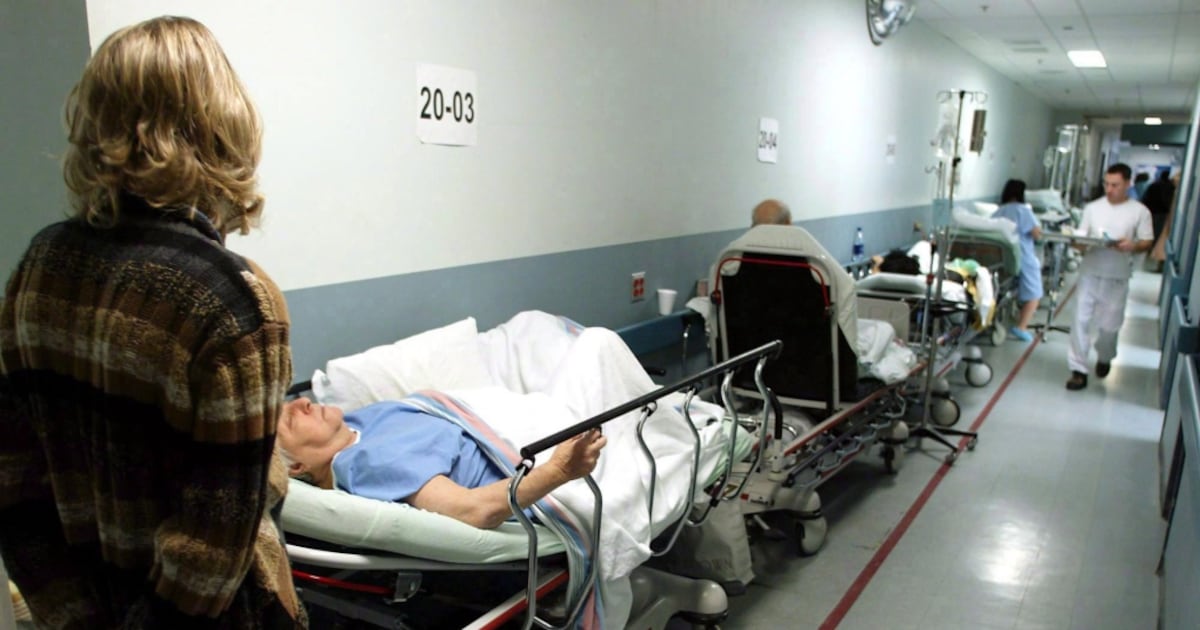Health
Know When to Seek Emergency Care: Expert Guidance for Flu Season

As flu season approaches, emergency rooms in Montreal are bracing for an influx of patients, many of whom could recover at home. Dr. Mitch Shulman, an emergency medicine specialist at the McGill University Health Centre (MUHC), emphasizes the importance of understanding when to seek medical attention. He warns that healthy individuals with common colds risk catching more serious illnesses by visiting crowded emergency departments.
Dr. Shulman humorously reflects on the phenomenon of the “man cold,” suggesting that healthy individuals should not flood the ER for mild symptoms. “A cold will last five to seven days if I treat it; a cold will last five to seven days if I don’t treat it,” he states.
When to Stay Home
Patients who are otherwise healthy should consider staying home under certain conditions. Dr. Shulman advises against visiting the ER for symptoms like nausea, vomiting, and diarrhea, as long as individuals can maintain their fluid intake. He also notes that a sore throat or mild cold symptoms, such as nasal congestion and a cough, do not warrant an emergency visit.
“Don’t visit me in the emergency room if you can manage your symptoms at home,” he says, emphasizing the need to reserve emergency care for those truly in need.
When to Seek Emergency Care
Certain situations require immediate attention at the ER, particularly for vulnerable populations. Elderly individuals and those with compromised immune systems—such as patients with cancer, diabetes, or heart disease—should seek care for cold symptoms if they persist beyond seven days or worsen. Dr. Shulman underscores that complications like pneumonia can arise from seemingly mild illnesses.
Other emergencies that necessitate an ER visit include signs of a heart attack or stroke. Symptoms such as sudden chest pain, difficulty breathing, and extreme fatigue can indicate a serious condition. “If you have the worst headache you’ve ever had or a high fever that isn’t responding to medication, you need to be seen immediately,” Dr. Shulman warns.
Furthermore, symptoms of a stroke can present as confusion, difficulty speaking, or sudden numbness. “The faster you get to an emergency room, the better the chances are that we can reverse the effects of the stroke,” he adds, cautioning that delays can lead to irreversible damage.
Parents, in particular, should be vigilant when it comes to their children’s health. Dr. Shulman notes that the rules can differ significantly when assessing pediatric cases. “If in doubt, especially with a child under the age of one, do not hesitate to go to the emergency room,” he insists, highlighting the importance of erring on the side of caution.
Alternatives to the Emergency Room
While emergency rooms are vital for serious health issues, Dr. Shulman advises that patients can often seek care elsewhere. Community pharmacists can provide treatment for common ailments, and patients can book appointments with healthcare professionals at nearby clinics through services like Clic Santé. For additional information, the Info-Santé 811 line is available for guidance.
Dr. Shulman encourages people to familiarize themselves with local health resources, including the operational hours of clinics. Knowing where to go for care can help avoid unnecessary trips to the ER, allowing emergency services to focus on those who need them most.
As flu season progresses, understanding when to seek emergency care will not only benefit individual health but also help alleviate pressure on healthcare facilities. Dr. Shulman’s insights serve as a crucial reminder of how to navigate common seasonal illnesses responsibly.
-

 Education3 months ago
Education3 months agoBrandon University’s Failed $5 Million Project Sparks Oversight Review
-

 Science4 months ago
Science4 months agoMicrosoft Confirms U.S. Law Overrules Canadian Data Sovereignty
-

 Lifestyle3 months ago
Lifestyle3 months agoWinnipeg Celebrates Culinary Creativity During Le Burger Week 2025
-

 Health4 months ago
Health4 months agoMontreal’s Groupe Marcelle Leads Canadian Cosmetic Industry Growth
-

 Technology3 months ago
Technology3 months agoDragon Ball: Sparking! Zero Launching on Switch and Switch 2 This November
-

 Science4 months ago
Science4 months agoTech Innovator Amandipp Singh Transforms Hiring for Disabled
-

 Education3 months ago
Education3 months agoRed River College Launches New Programs to Address Industry Needs
-

 Technology4 months ago
Technology4 months agoGoogle Pixel 10 Pro Fold Specs Unveiled Ahead of Launch
-

 Business3 months ago
Business3 months agoRocket Lab Reports Strong Q2 2025 Revenue Growth and Future Plans
-

 Technology2 months ago
Technology2 months agoDiscord Faces Serious Security Breach Affecting Millions
-

 Education3 months ago
Education3 months agoAlberta Teachers’ Strike: Potential Impacts on Students and Families
-

 Science3 months ago
Science3 months agoChina’s Wukong Spacesuit Sets New Standard for AI in Space
-

 Education3 months ago
Education3 months agoNew SĆIȺNEW̱ SṮEȽIṮḴEȽ Elementary Opens in Langford for 2025/2026 Year
-

 Technology4 months ago
Technology4 months agoWorld of Warcraft Players Buzz Over 19-Quest Bee Challenge
-

 Business4 months ago
Business4 months agoNew Estimates Reveal ChatGPT-5 Energy Use Could Soar
-

 Business3 months ago
Business3 months agoDawson City Residents Rally Around Buy Canadian Movement
-

 Technology2 months ago
Technology2 months agoHuawei MatePad 12X Redefines Tablet Experience for Professionals
-

 Business3 months ago
Business3 months agoBNA Brewing to Open New Bowling Alley in Downtown Penticton
-

 Technology4 months ago
Technology4 months agoFuture Entertainment Launches DDoD with Gameplay Trailer Showcase
-

 Technology4 months ago
Technology4 months agoGlobal Launch of Ragnarok M: Classic Set for September 3, 2025
-

 Technology4 months ago
Technology4 months agoInnovative 140W GaN Travel Adapter Combines Power and Convenience
-

 Science4 months ago
Science4 months agoXi Labs Innovates with New AI Operating System Set for 2025 Launch
-

 Top Stories2 months ago
Top Stories2 months agoBlue Jays Shift José Berríos to Bullpen Ahead of Playoffs
-

 Technology4 months ago
Technology4 months agoNew IDR01 Smart Ring Offers Advanced Sports Tracking for $169










